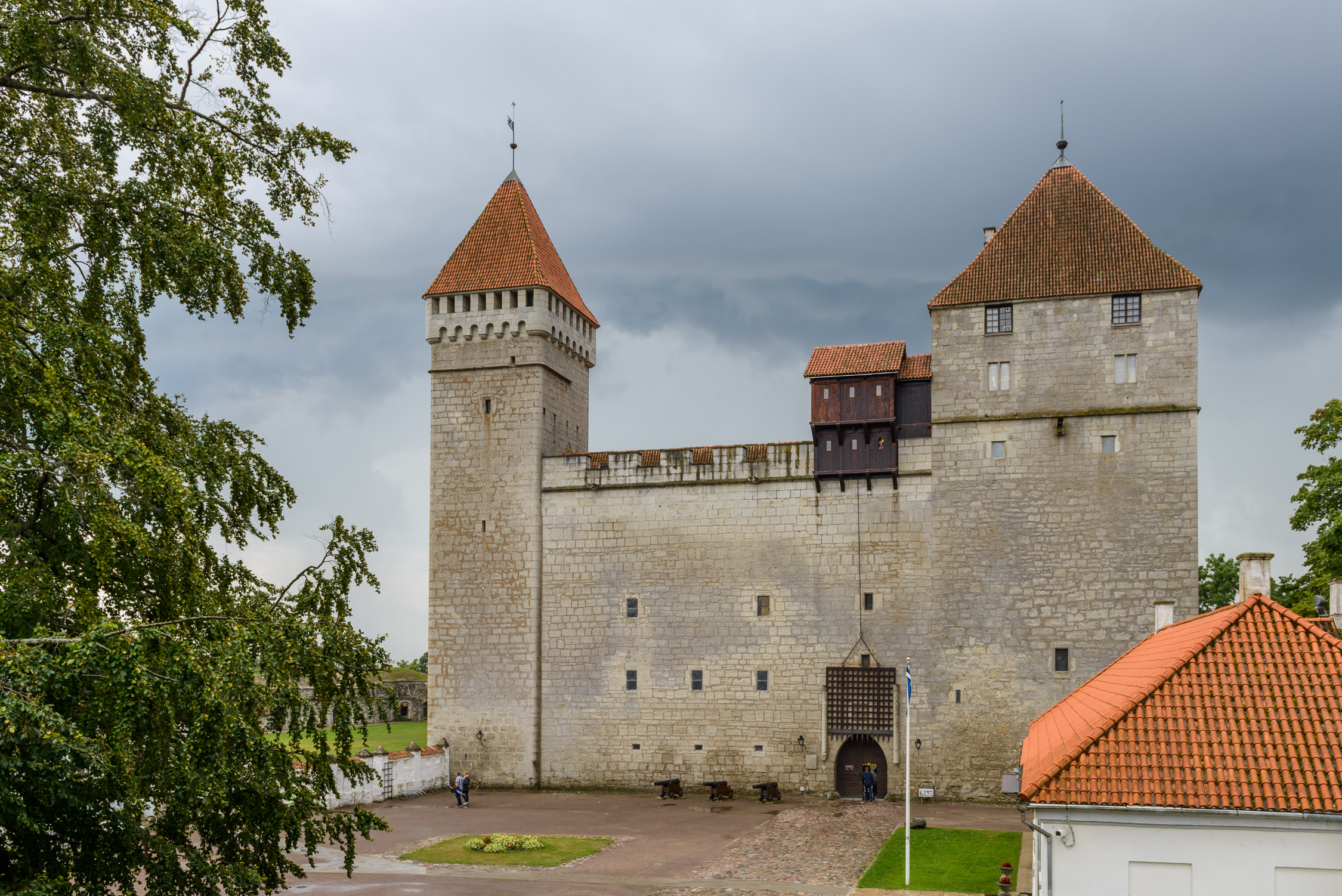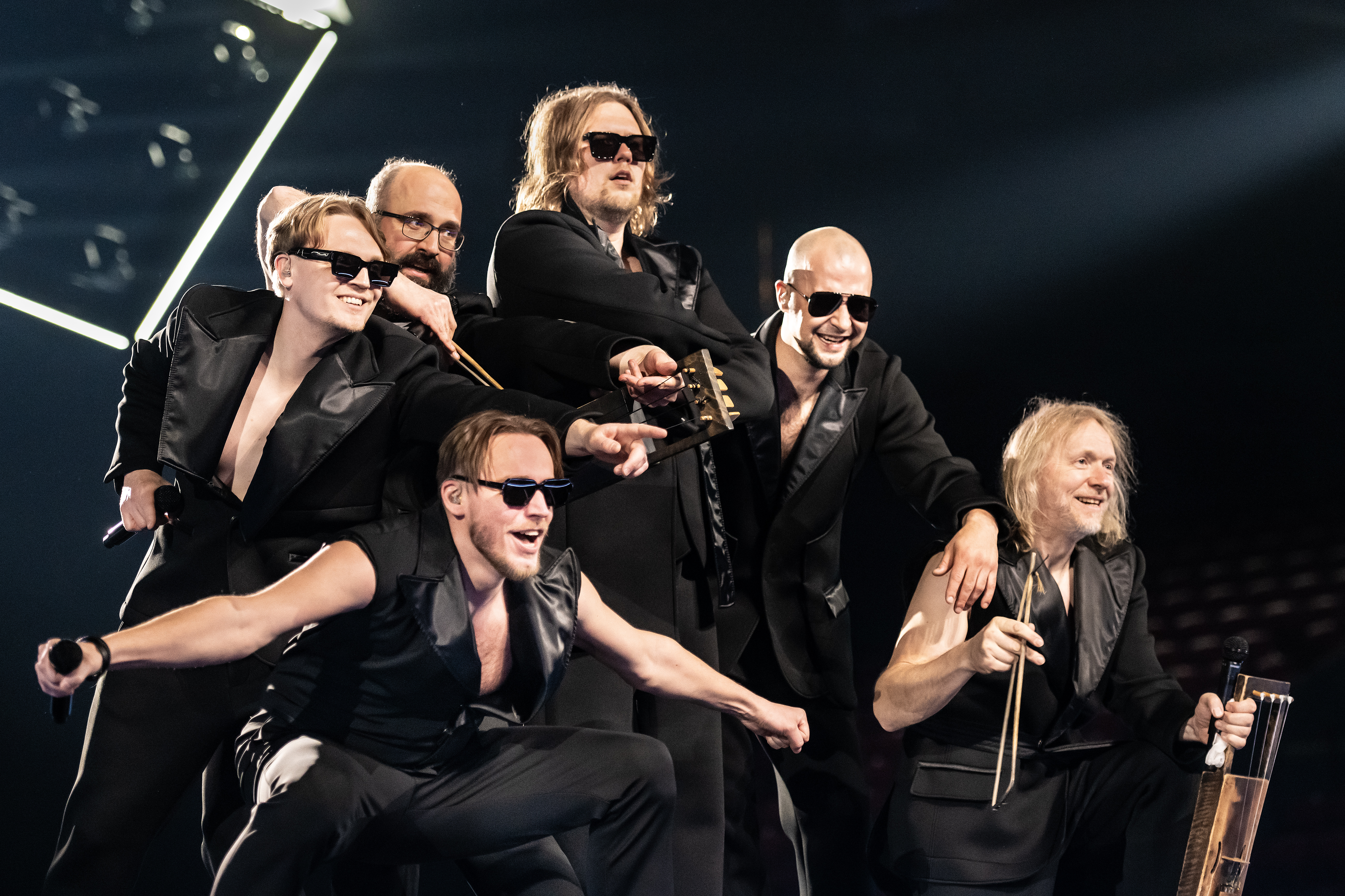|
Uudo Sepp
Uudo Sepp (born 28 March 1997 in Kuressaare) is an Estonian singer. In 2018, he won first place in the television program ''Eesti otsib superstaari''. In 2020, he competed in Eesti Laul, the annual music competition organised by Estonian public broadcaster Eesti Rahvusringhääling (ERR) to determines the country's representative for the Eurovision Song Contest The Eurovision Song Contest (), sometimes abbreviated to ESC and often known simply as Eurovision, is an international songwriting competition organised annually by the European Broadcasting Union (EBU), featuring participants representing pr .... He achieved 10th place. He will compete alongside Sarah Murray in the final of Eesti Laul 2024 with the song "Still Love". Discography * single "Tahan elada" (2018) * album ''Sinule'' (2018) References {{DEFAULTSORT:Sepp, Uudo 1997 births Living people 21st-century Estonian male singers Estonian pop singers People from Kuressaare In August 2023 wrote song "L ... [...More Info...] [...Related Items...] OR: [Wikipedia] [Google] [Baidu] |
Kuressaare
Kuressaare () is a town on Saaremaa island in Estonia. It is the administrative centre of Saaremaa Parish and the capital of Saare County. Kuressaare is the westernmost town in Estonia. The recorded population on 1 January 2018 was 13,276. The town is situated on the southern coast of Saaremaa island, facing the Gulf of Riga of the Baltic Sea, and is served by the Kuressaare Airport, Roomassaare harbour, and Kuressaare yacht harbour. Names Kuressaare's historic name Arensburg (from Middle High German ''a(a)r:'' eagle, raptor) renders the Latin denotation ''arx aquilae'' for the city's castle. The fortress and the eagle, tetramorph symbol of Saint John the Evangelist, are also depicted on Kuressaare's coat of arms. The town, which grew around the fortress, was simultaneously known as Arensburg and Kuressaarelinn; the latter name being a combination of ''Kuressaare''—an ancient name of the Saaremaa Island—and ''linn'', which means ''town''.Pospelov, p. 28 Alternative ... [...More Info...] [...Related Items...] OR: [Wikipedia] [Google] [Baidu] |
Estonians
Estonians or Estonian people ( et, eestlased) are a Finnic ethnic group native to Estonia who speak the Estonian language. The Estonian language is spoken as the first language by the vast majority of Estonians; it is closely related to other Finnic languages, e.g. Finnish, Karelian and Livonian. The Finnic languages are a subgroup of the larger Uralic family of languages, which also includes, e.g., the Sami languages. These languages are markedly different from most other native languages spoken in Europe, most of which have been assigned to Indo-European family of languages. Estonians can also be classified into subgroups according to dialects (e.g., Võros, Setos), although such divisions have become less pronounced due to internal migration and rapid urbanisation in Estonia in the 20th century. There are approximately 1.1 million ethnic Estonians and their descendants with some degree of Estonian identity worldwide; the large majority of them are living in Estonia. H ... [...More Info...] [...Related Items...] OR: [Wikipedia] [Google] [Baidu] |
Eesti Otsib Superstaari
''Eesti otsib superstaari'' ''(Estonia is Searching for a Superstar)'' is an Estonian reality-competition gameshow airing on TV3. It debuted on 11 March 2007 and it has since become one of the most popular shows in Estonia. Part of the Idol franchise, it originated from the reality program ''Pop Idol'' created by the British entertainment executive Simon Fuller, first aired in 2001 in the United Kingdom. The program seeks to discover the best singer in Estonia through a series of nationwide auditions. The outcomes of the later stages of the competition are determined by the viewers. Through telephone and SMS text voting, viewers have chosen as winners Birgit Õigemeel, Jana Kask, Ott Lepland, Liis Lemsalu, Rasmus Rändvee Jüri Pootsmann and Uudo Sepp (listed in chronological order). The format features a panel of judges who critique the contestants' performances. The judges are former recording artist, music critic and journalist Mihkel Raud (all 5 seasons), singer Maarj ... [...More Info...] [...Related Items...] OR: [Wikipedia] [Google] [Baidu] |
Estonia In The Eurovision Song Contest 2020
Estonia originally planned to participate in the Eurovision Song Contest 2020 with the song "What Love Is" written by Uku Suviste and Sharon Vaughn. The song was performed by Uku Suviste. The Estonian broadcaster (ERR) organised the national final in order to select the Estonian entry for the 2020 contest in Rotterdam, Netherlands. The national final consisted of three shows: two semi-finals and a final. Twelve songs competed in each semi-final and six from each semi-final as determined by a jury panel and public vote qualified to the final. In the final, the winner was selected over two rounds of voting. In the first round, a jury panel and a public vote selected the top three to qualify to the superfinal. In the superfinal, "What Love Is" performed by Uku Suviste was selected as the winner entirely by a public vote. Estonia was drawn to compete in the second semi-final of the Eurovision Song Contest which took place on 14 May 2020. However, the contest was cancelled due to the ... [...More Info...] [...Related Items...] OR: [Wikipedia] [Google] [Baidu] |
Eesti Rahvusringhääling
Eesti Rahvusringhääling (ERR) – ''Estonian Public Broadcasting'' – is a publicly funded and owned radio and television organisation created in Estonia on 1 June 2007 to take over the functions of the formerly separate Eesti Raadio (ER) (''Estonian Radio'') and Eesti Televisioon (ETV) (''Estonian Television''), under the terms of the Estonian National Broadcasting Act. The first chair of ERR is Margus Allikmaa, the former chair of Eesti Raadio. Present CEO is Erik Roose. The organisation has proved popular since its creation, with ETV becoming the national television channel, creating and producing their own shows. Eesti Rahvusringhääling (ERR) can be streamed live from all around the world from online browsers as well as an app. Services Television ERR's three national television channels are: *ETV – a general interest television channel *ETV2 – programming for children, sports, cultural programming, i.e. quality films and drama series *ETV+ – ... [...More Info...] [...Related Items...] OR: [Wikipedia] [Google] [Baidu] |
Eurovision Song Contest
The Eurovision Song Contest (), sometimes abbreviated to ESC and often known simply as Eurovision, is an international songwriting competition organised annually by the European Broadcasting Union (EBU), featuring participants representing primarily European countries. Each participating country submits an original song to be performed on live television and radio, transmitted to national broadcasters via the EBU's Eurovision and Euroradio networks, with competing countries then casting votes for the other countries' songs to determine a winner. Based on the Sanremo Music Festival held in Italy since 1951, Eurovision has been held annually since 1956 (apart from ), making it the longest-running annual international televised music competition and one of the world's longest-running television programmes. Active members of the EBU, as well as invited associate members, are eligible to compete, and 52 countries have participated at least once. Each participating broadcaster se ... [...More Info...] [...Related Items...] OR: [Wikipedia] [Google] [Baidu] |
Estonia In The Eurovision Song Contest 2024
Estonia participated in the Eurovision Song Contest 2024 in Malmö, Sweden, with "" performed by and . The Estonian broadcaster (ERR) organised the national final ''2024'' in order to select the Estonian entry for the contest. The national final consisted of two shows: a semi-final and a final. Fifteen songs competed in the semi-final and five were automatically qualified for the final. A total of five songs qualified from the semi-final: three were determined by a jury panel and public vote and two were selected solely by the public vote. In the final, the winner was selected over two rounds of voting. In the first round, a jury panel and a public vote selected the top three to qualify to the superfinal. In the superfinal, "(Nendest) narkootikumidest ei tea me (küll) midagi" performed by 5miinust and Puuluup was selected as the winner entirely by a public vote. Estonia was drawn to compete in the second semi-final of the Eurovision Song Contest which took place on 9 May 2024. ... [...More Info...] [...Related Items...] OR: [Wikipedia] [Google] [Baidu] |



.png)
